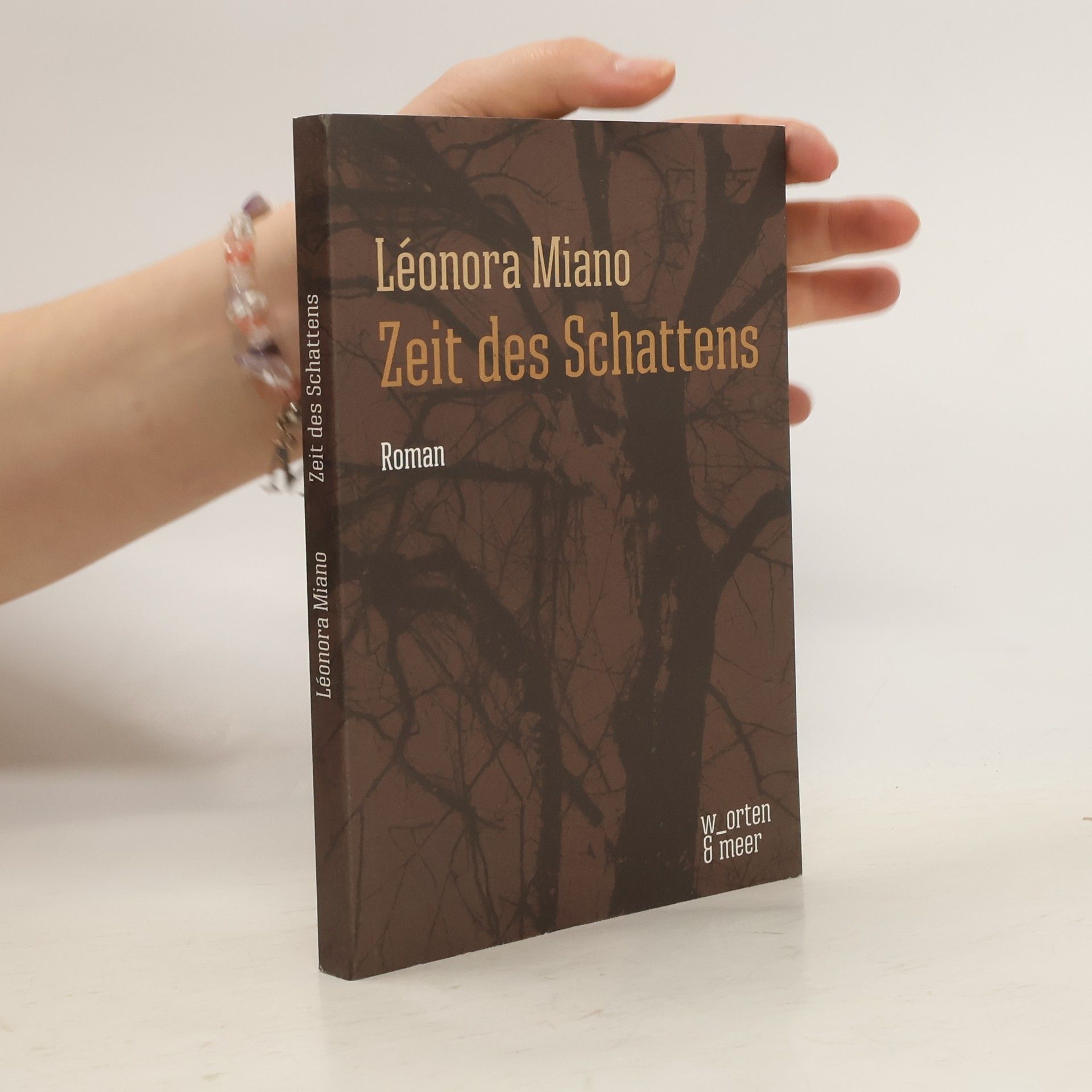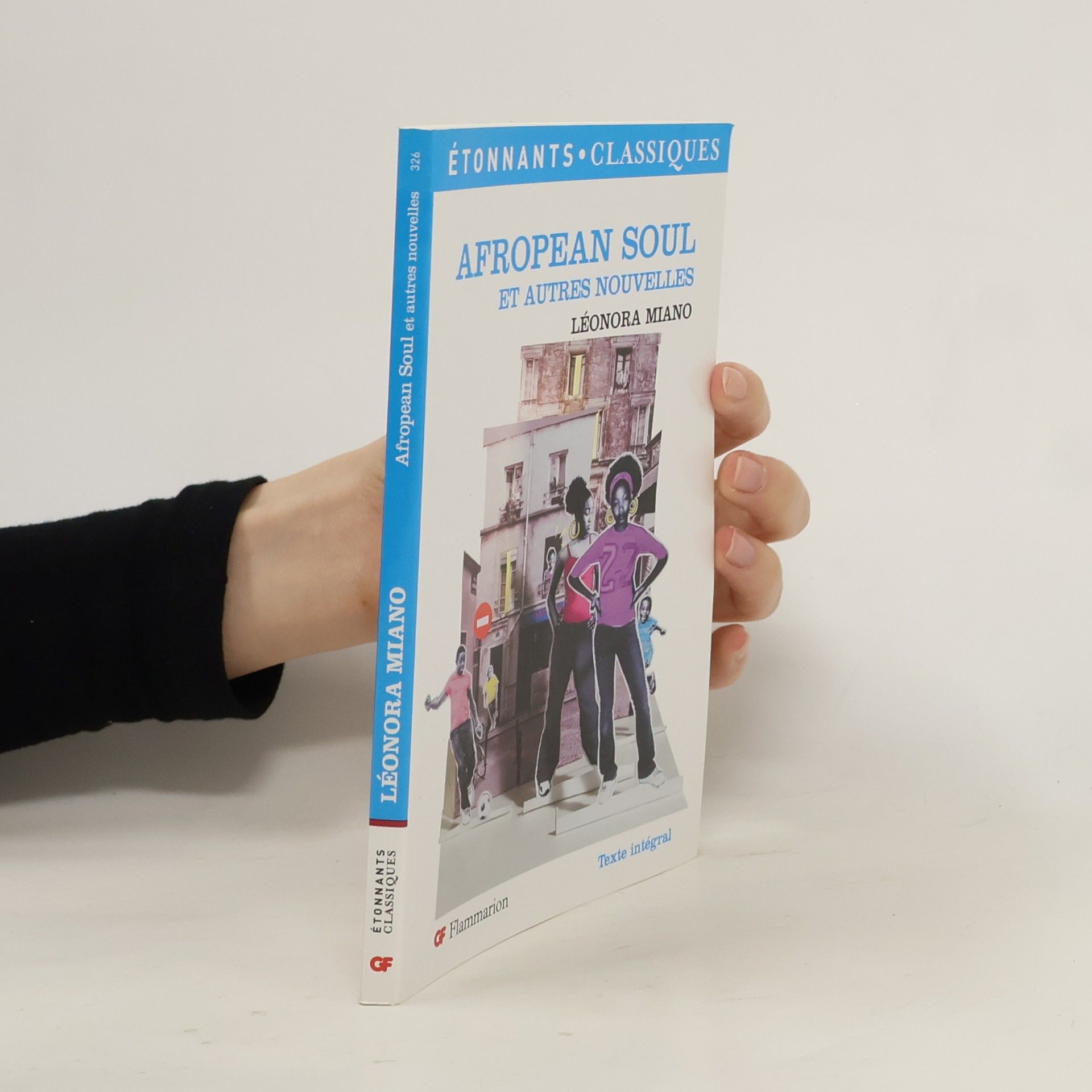Léonora Miano Bücher
Léonora Miano taucht tief in die afrikanische Geschichte und Kultur ein, um Themen wie Identität, Erinnerung und postkoloniales Erbe zu erforschen. Ihr Stil zeichnet sich durch eine lyrische Sprache und eine poetische Vision aus, die den Leser in die komplexen Welten ihrer Charaktere entführt. Durch ihr Schreiben beleuchtet sie Erfahrungen und Perspektiven, die oft an den Rand gedrängt werden. Miano bietet eine kraftvolle und prägnante Reflexion über die menschliche Verfassung und die Nachwirkungen der Geschichte.






Ein Dorf brennt. Einige Tageswanderungen vom Meer entfernt, irgendwo an der westafrikanischen Küste. Nach dem Brand sind zwölf junge Männer aus dem Dorf verschwunden. Die Mütter trauern kollektiv, ausgeschlossen aus der Dorfgemeinschaft, eine Gruppe wird losgeschickt, um die Verschwundenen zu suchen. Die Heilerin des Dorfes hat Visionen, die Mütter haben Träume, in denen ihnen ihre Söhne erscheinen. Alle begegnen so dem bisher Unvorstellbaren: dem Beginn der kolonialistischen Verschleppung, Ausbeutung und Ermordung von Menschen des afrikanischen Kontinents. Zeit des Schattens ist ein intensiver, großartig erzählter und historisch wie politisch wichtiger Roman. Erzählt wird aus der Perspektive derjenigen, deren Gemeinschaften, Lebensweisen und Glaubenssysteme mit dem europäischen Kolonialismus neue Dimensionen von Gewalt erfahren und erleiden mussten.
Sisterhood
Für einen anderen Dialog zwischen den Frauen der Welt
Wie kann eine weltweite Solidarität unter Frauen aussehen? Und was lehrt uns die Geschichte der Frauen aus der Subsahara? Léonora Miano zeigt anhand der Mythen und sozialen Praktiken, wie die Subsahara-Frauen über patriarchalische Gesellschaften herrschten, sexuelle Lust zu einem Recht machten und sich in antikolonialen Kämpfen engagierten. Der reiche, vielfältige Erfahrungsschatz der Afrikanerinnen bleibt in der globalen Feminismus-Geschichte jedoch marginalisiert. Würden sich die Frauen Europas und Afrikas zu einer neuen Solidarität vereinen und voneinander lernen, statt immer nur die männliche Dominanz zu beklagen, wäre der Feminismus einen entscheidenden Schritt weiter. Mianos Buch ist ein leidenschaftliches Plädoyer für eine neue weltweite Schwesternschaft und eine faszinierende Reise zu den Ursprüngen eines anderen Feminismus.
Alles andere als strahlend weiß
Gedanken zum weißen Problem (Das Gegenteil von Weißsein)
- 176 Seiten
- 7 Lesestunden
Twilight of Torment
- 242 Seiten
- 9 Lesestunden
A haunting, multivocal novel full of stories of the lives of women of African descent. Four women speak. They speak to the same man, who is not there. He is the son of the first, the great-yet-impossible love of the second, the platonic companion of the third, the older brother of the last. Speaking to him in his absence, it is to themselves that these women turn, examining their own stories to make sense of their journey, from twilight to twilight, through a mysterious stormy night in the middle of the dry season. Together, the voices in Twilight of Torment: Melancholy, the first volume of a two-volume novel, perform a powerful and sometimes discordant jazz-inspired chorus about issues such as femininity, sexuality, self-love and the intrusion of history into the intimate lives of people of African descent. Blackness confronts African-ness, love is sometimes discovered in the arms of another woman, the African renaissance tries to establish itself on the rubble of a self-esteem damaged by history. Each of these women, with her own language and rhythm, ultimately represents a specific aspect of the tormented history of Africans in today's world, and at the end of the night they will each arrive at a dawn of hope.
Twilight of Torment - II. Heritage
- 292 Seiten
- 11 Lesestunden
A searing novel exploring the construction of masculinity in sub-Saharan Africa. After beating his girlfriend and leaving her for dead on the street, Amok retraces his steps. Frightened by his act, which reproduces the violence of his father, he hopes to save the woman. But it is too late when he arrives at the scene; two women are already carrying the injured woman. Overwhelmed and not daring to reveal himself, he decides to find his father in order to learn how to rid himself of the dark force that he believes runs through the men of his lineage. He embarks on a journey that will be, more than anything, an inner one, forcing him to understand his story and choose a healthier way of being in the world. This second volume of Twilight of Torment is both intimate and political. Through the story of a man and his family, we discover an African bourgeoisie and its many social wanderings in a contemporary Africa whose future seems nebulous.
L'un est âgé de neuf ans. C'est encore un enfant. Pourtant, il comprend : la misère, la solitude et la relégation sociale de sa mère, diplômée en lettres mais condamnée à n'être qu'une voix répondant au téléphone. L'autre est un jeune footballeur prometteur. Il a quitté sa ville natale - Douala - et les siens pour réussir en France. De l'Hexagone, il ne connaît pas les vertes pelouses, seulement la rue et l'exclusion. Et puis, derrière la porte noire du 166, rue de C., il y a Amélie, Sophie, Maya et les autres. On ignore leur présence. Elles vivent à Paris, dans un centre d'hébergement d'urgence. Par touches successives, ces récits dessinent les visages de celles et ceux que l'on croise sans les voir. Levant le voile sur leurs parcours, ils les sauvent de l'oubli. Le volume réunit cinq nouvelles inédites de Léonora Miano, lauréate du Goncourt des Lycéens 2006. Le dossier de l'édition contient un entretien exclusif avec l'auteure.
Crépuscule du tourment, Héritage
- 316 Seiten
- 12 Lesestunden
Amok, vu par le regard extérieur de quatre femmes au premier tome, apparaît dans son intériorité, sa vérité, sa fragilité et sa complexité. Ayant battu sa compagne, qu'il laisse pour morte, horrifié, il fuit et est victime d'un accident qui le laisse inconscient. Il est alors confronté à ses relations, féminines et masculines, vivantes et mortes, familiales et amicales, et à ses vieux démons.


